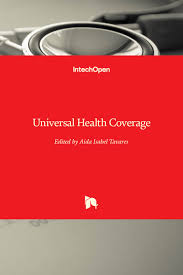The Case for Universal Health Insurance in Brazil
Universal health insurance is a system where every citizen has access to necessary medical services without facing financial hardship. Countries that have adopted universal health coverage (UHC) ensure that health services are available to all, regardless of their economic status, thereby promoting equity and social justice. In Brazil, the debate over the necessity and viability of UHC is ongoing, despite the country’s public healthcare system—Sistema Único de Saúde (SUS)—being one of the largest public health systems in the world.
While Brazil has made significant strides in providing healthcare to its citizens, there are still gaps in access and quality that could be addressed through more comprehensive universal health insurance policies. This article explores the current state of health insurance in Brazil, the benefits of a universal health insurance system, the challenges faced by the Brazilian healthcare sector, and the potential impact of fully embracing universal health coverage.
1. The Current State of Health Insurance in Brazil
Brazil has a mixed healthcare system consisting of both public and private sectors. The SUS, established in 1988 under Brazil’s new constitution, guarantees free healthcare services to all citizens. Funded by the federal government, states, and municipalities, SUS provides services ranging from basic medical care to complex procedures like organ transplants.
While SUS is free and available to all, many Brazilians still opt for private health insurance due to concerns about the quality and efficiency of public healthcare services. The private health insurance sector caters to around 25% of the population, offering faster access to medical care, shorter waiting times, and better hospital conditions. However, private health insurance is often expensive, placing it out of reach for the majority of low- and middle-income Brazilians.
The reliance on both public and private healthcare systems creates a disparity in access to quality care, with wealthier individuals receiving superior treatment through private insurance while lower-income individuals rely on the often underfunded and overcrowded public system. This duality raises concerns about the equity of healthcare access in Brazil and strengthens the case for universal health insurance.
2. The Benefits of Universal Health Insurance
Universal health insurance aims to eliminate disparities in healthcare access by ensuring that all citizens receive the medical services they need without the burden of out-of-pocket payments or the need for private insurance. In Brazil, fully implementing universal health insurance would bring several significant benefits:
a. Equity in Healthcare Access
One of the main goals of universal health insurance is to provide equitable access to healthcare services. Currently, those with private insurance in Brazil tend to receive quicker and higher-quality care than those relying on SUS. This inequality perpetuates a system where healthcare outcomes are determined by socioeconomic status.
By establishing a more comprehensive universal health insurance system, Brazil could ensure that every citizen, regardless of income, receives the same standard of care. This would eliminate the need for expensive private insurance and reduce the health disparities between different economic classes.
b. Financial Protection
Healthcare costs can be a significant financial burden, particularly for those without insurance. While SUS covers a wide range of services, there are gaps in coverage, and patients often have to pay out-of-pocket for certain medications or treatments. Private health insurance premiums are also a major expense for many Brazilian households, especially given the rising costs of healthcare.
Universal health insurance would provide financial protection for all Brazilians, ensuring that they do not have to choose between receiving medical care and facing financial hardship. It would also reduce the number of people falling into poverty due to healthcare expenses, contributing to broader economic stability.
c. Improved Public Health Outcomes
When healthcare is accessible to everyone, the overall health of the population improves. Universal health insurance encourages people to seek medical attention when they need it, leading to earlier diagnosis and treatment of illnesses. Preventive care, such as vaccinations, regular check-ups, and health education, becomes more widely available, reducing the incidence of chronic diseases and improving quality of life.
For Brazil, universal health insurance could help address some of the country’s most pressing health challenges, such as high rates of infectious diseases, maternal mortality, and non-communicable diseases like diabetes and hypertension. By providing consistent and reliable access to healthcare, Brazil could achieve better health outcomes for all its citizens.
d. Strengthening the Healthcare System
A universal health insurance system would require increased investment in Brazil’s healthcare infrastructure, particularly in the public sector. This investment would help improve the quality of care provided by SUS, addressing issues such as long wait times, overcrowded hospitals, and shortages of medical supplies and personnel.
By focusing resources on strengthening SUS and ensuring it meets the needs of all Brazilians, the country could build a more robust and resilient healthcare system. A well-functioning universal health insurance system would also reduce the pressure on private health insurance, making the entire healthcare system more sustainable.
3. Challenges to Implementing Universal Health Insurance in Brazil
While the benefits of universal health insurance are clear, there are several challenges to implementing such a system in Brazil. These include:
a. Economic Constraints
The Brazilian government already faces significant budgetary challenges, and expanding healthcare coverage to provide comprehensive universal health insurance would require substantial investment. Funding universal health insurance would likely involve raising taxes or reallocating government spending from other areas, both of which could face political opposition.
Brazil’s healthcare sector already consumes a large portion of the national budget, and increasing this expenditure would necessitate careful planning to avoid exacerbating the country’s fiscal deficit. However, many experts argue that investing in healthcare is a long-term benefit, as a healthier population contributes to increased productivity and economic growth.
b. Political Resistance
The Brazilian political landscape is complex, and implementing universal health insurance would likely encounter resistance from various interest groups, particularly those with a vested interest in the private health insurance market. Private health insurers, as well as some politicians, may oppose efforts to expand the public healthcare system, fearing a loss of profits or political power.
To successfully implement universal health insurance, the government would need to navigate these political challenges and build consensus among stakeholders. This may involve compromises or phased implementation to ensure a smooth transition to a more inclusive healthcare system.
c. Infrastructure and Human Resources
Brazil’s healthcare infrastructure, particularly in the public sector, is currently under strain. Many public hospitals and clinics are overcrowded, underfunded, and understaffed. Expanding access to healthcare through universal health insurance would require significant improvements to healthcare facilities and the recruitment and training of more healthcare professionals.
Addressing these infrastructure and workforce challenges would take time and resources, but it is essential to ensure that the healthcare system can meet the increased demand generated by universal health insurance.
d. Regional Disparities
Brazil is a geographically vast country with significant regional disparities in healthcare access and quality. While urban areas, particularly in the southeast, have well-developed healthcare systems, rural and remote areas often lack adequate medical facilities and personnel. Implementing universal health insurance would require addressing these regional disparities and ensuring that healthcare services are available to all Brazilians, regardless of where they live.
Improving healthcare access in rural areas would involve building new healthcare facilities, increasing the number of healthcare workers, and developing telemedicine programs to reach underserved populations.
4. The Impact of Universal Health Insurance on Brazil’s Future
Despite the challenges, the case for universal health insurance in Brazil is strong. By providing equitable access to healthcare, reducing financial hardship, and improving public health outcomes, universal health insurance would contribute to a more just and prosperous society. Moreover, a healthier population would lead to increased productivity, reduced absenteeism, and greater economic growth in the long term.
Universal health insurance would also promote social cohesion by addressing the stark inequalities that currently exist in Brazil’s healthcare system. By ensuring that all Brazilians, regardless of income or geographic location, have access to high-quality medical care, the country could take a significant step towards reducing poverty and inequality.
Conclusion
The case for universal health insurance in Brazil is rooted in the principles of equity, social justice, and improved public health. While the country has made significant progress with its public healthcare system, there are still gaps in access and quality that leave many Brazilians without the care they need. Fully embracing universal health insurance would address these disparities, providing financial protection and improving health outcomes for all citizens.
While there are challenges to implementing universal health insurance, including economic constraints, political resistance, and infrastructure limitations, the long-term benefits far outweigh the costs. By investing in a more inclusive healthcare system, Brazil could ensure that all its citizens receive the care they need to live healthy, productive lives.


